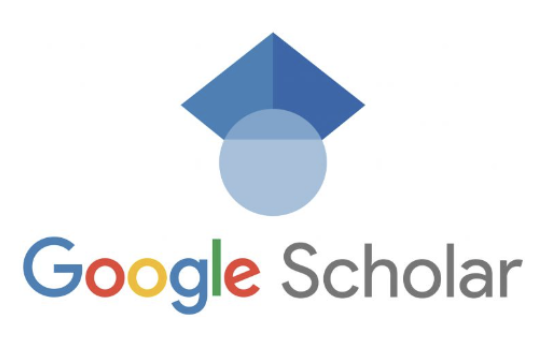Is Google Scholar Peer Reviewed? .Google Scholar is a widely used academic search engine that allows researchers to find scholarly articles, books, conference papers, and more. It provides a vast collection of resources from various disciplines, making it a valuable tool for researchers. However, there is often confusion about whether the articles found on Google Scholar are peer-reviewed. In this article, we will explore the question, “Is Google Scholar peer-reviewed?”
Understanding Peer Review
Before delving into the topic, let’s first understand what peer review entails. Peer review is a rigorous process that ensures the quality and accuracy of scholarly articles. When a paper is submitted to a journal, it undergoes a review process conducted by experts in the field. These experts, known as peers, carefully evaluate the article for its scientific validity, methodology, and relevance before recommending its publication. Peer review is crucial in maintaining the integrity of academic research.
Google Scholar and Peer Review
Unfortunately, Google Scholar does not have a specific setting to filter results only to peer-reviewed articles. When conducting a search on Google Scholar, you will come across a mix of peer-reviewed and non-peer-reviewed sources. This can make it challenging to determine the reliability and credibility of the articles you find.
However, this does not mean that all articles on Google Scholar are unreliable. Many reputable journals and conference proceedings are indexed by Google Scholar, including those that employ a rigorous peer-review process. The challenge lies in identifying which articles have undergone peer review and which have not.
Identifying Peer-Reviewed Articles on Google Scholar
While Google Scholar does not provide a direct option to filter for peer-reviewed articles, there are a few strategies you can employ to identify them:
- Check the Journal: When you come across an article on Google Scholar, look up the journal in which it is published. Most journals clearly state whether they follow a peer-review process on their websites. If the journal is well-known and respected in the academic community, there’s a high likelihood that the articles published in it have undergone peer review.
- Library Databases: If you have access to library databases, they often have options to restrict your search to peer-reviewed articles. Platforms like Ebsco databases provide a checkbox to filter for peer-reviewed articles, ensuring that your search results primarily include articles that have undergone peer review.
- Consult Subject Experts: If you are unsure about the credibility of a particular article, it is always beneficial to consult subject experts or your peers who have knowledge in the field. They can provide insights into the reliability of the article and guide you in making informed decisions about using the information in your research.
Leveraging Library Resources
While Google Scholar is a valuable tool, it is essential to remember that it does not encompass all resources available to researchers. Libraries offer a wide range of databases, journals, and books that may not be indexed by Google Scholar. By utilizing library resources, you can access a more comprehensive collection of peer-reviewed articles and ensure the reliability of your research.
Activating FIND IT at UW Whitewater in Google Scholar
If you are a student or researcher affiliated with the University of Wisconsin Whitewater, you can enhance your Google Scholar experience by setting up the FIND IT feature. This feature allows you to access the university’s subscriptions and resources seamlessly. Here’s how you can activate FIND IT at UW Whitewater in Google Scholar:
- Visit https://scholar.google.com/.
- Optional: Sign in to your Google account to save your preferences.
- Click on the “more” option and select the Settings button (the gear icon).
- On the left side of the page, click on “Library Links.”
- Type “University of Wisconsin Whitewater” in the search box and select “Search.”
- A checkbox option for “UW-Whitewater–Find It @ UWW” will appear below your search. Check the box.
- You can also keep “Open WorldCat” checked as a connection.
- Click “Save” to apply the changes.
After setting up FIND IT at UW Whitewater, you will see the “Find It at UW-W” link on your search results pages in Google Scholar, indicating the availability of university subscriptions. This convenient feature allows you to access the full text of articles and resources that the university has subscribed to.
Accessing Articles That Are Not Available
Despite the extensive resources available through Google Scholar and library subscriptions, there may still be instances where you are unable to access a particular article. In such cases, there are alternative options:
- InterLibrary Loan: If the article you need is not available through your institution’s subscriptions, you can request it for free via InterLibrary Loan (ILL). InterLibrary Loan allows you to obtain articles from other libraries that do have access to the desired article. While it may take a few days, ILL can be a valuable resource for accessing articles that would otherwise be unavailable.
- Exploring Alternative Sources: It’s important to remember that Google Scholar does not interlink with all UW-W ebooks and articles. To ensure that you have access to the best available sources of information, it is recommended to search the library catalog (Research@UWW) for books and media. Additionally, consider searching subject-specific databases in conjunction with Google Scholar to broaden your research scope and access a wider range of reliable sources.
Conclusion
In conclusion, Google Scholar is a useful tool for finding scholarly articles and resources. While it does not have a specific filter for peer-reviewed articles, many reputable journals and conference proceedings are indexed by Google Scholar. By employing strategies such as checking the journal, utilizing library databases, and consulting subject experts, you can identify peer-reviewed articles on Google Scholar. Additionally, activating the FIND IT feature at UW Whitewater can enhance your access to university subscriptions. Remember to utilize library resources and alternative options like InterLibrary Loan when necessary. By combining the strengths of Google Scholar and library databases, you can conduct comprehensive and reliable research.

